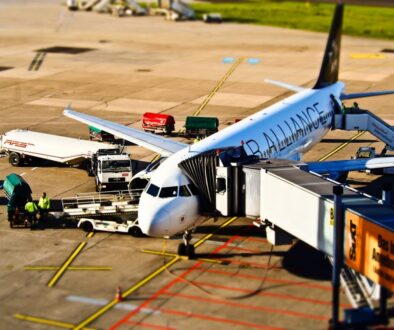The Costa Rican Free Trade Zones Business Association opposes all efforts to introduce new taxes into their operations
Table of Contents
Contact the Central American Group to explore the foreign investment options in El Salvador and Costa Rica.
The International Monetary Fund proposes revisions to tax regulations affecting Free Trade Zones.
The Costa Rican Free Trade Zones Business Association (AZOFRAS) strongly rejected the International Monetary Fund’s (IMF) recent suggestions to boost tax revenues by making changes to the Free Trade Zone Regime. The rejection came after the IMF’s Article IV Consultation for Costa Rica, where the institution suggested tax reforms to boost equity and efficiency, along with the revenue-to-GDP ratio.
AZOFRAS stands in defense of the existing Free Trade Zone framework.
AZOFRAS stands firmly against any proposed changes to the existing structure of Costa Rican free trade zones, which includes income tax exemptions that have been essential for economic growth. The association demands that decision-makers conduct a comprehensive evaluation of all elements influencing the national investment environment while keeping global contexts in mind before making any moves that could harm the existing model’s effectiveness.
A sophisticated strategy is necessary to address both global and local dynamics.
AZOFRAS representatives say that future discussions on Costa Rican free trade zones require an analysis of both international and domestic factors. The factors affecting the nation’s investment climate include geopolitical conflicts. along with continuous trade tensions, adjustments to monetary and fiscal policies, and the influence of international social movements and changing public and political policy trends. Approaching this issue with a narrow budgetary reform focus would lead to serious strategic errors.
Strategic Value in Attracting Investment and Driving Development
The president of AZOFRAS, Ronald Lachner, reinforced that Costa Rican free trade zones play a strategic role in securing FDI and advancing national socio-economic growth. The present context demands careful assessment of various elements before deciding on measures that could affect a valuable regime which has demonstrated substantial profitability and strategic advantages for the country through its ability to draw FDI and generate formal high-quality jobs, while creating productive connections and increasing exports.
Free Trade Zones lead to employment growth and quality of life improvements.
The Free Trade Zone framework serves as a crucial pillar of Costa Rica’s development approach while functioning as an essential driver of its economic growth. The operational model supports 600 companies, which create close to 300,000 direct and indirect employment opportunities. The average salary for jobs in this sector stands at 1.8 times the earnings typical of other economic sectors, while job availability remains abundant. The improved living standards and development of a stronger middle class occurred throughout the country as a result of this economic strategy.
The economy grows stronger through productive connections between multinational corporations and local businesses.
The free trade zones in Costa Rica have been essential to establishing productive connections between multinational corporations and domestic companies. The connection between multinational companies and local firms strengthens the national economy by boosting domestic supply chains and innovation while providing small and medium-sized enterprises (SMEs) access to global production networks. Companies operating within free trade zones have surpassed US$6 billion in local purchases, demonstrating how deeply these zones are embedded in the Costa Rican economy.
The free trade zones generate significant value for national production and export performance.
The Free Trade Zone regime stands for 14% of Costa Rica’s Gross Domestic Product while producing 65% of the country’s total export volume. The statistics reveal how crucial the regime is for the nation’s economic performance while also demonstrating its role in establishing Costa Rica as a vigorous competitor in international markets.
Fiscal Returns Justify the Exemptions
The Free Trade Zone regime generates fiscal benefits for the country. The Costa Rican economy gains $2.80 for each dollar exempted under the Free Trade Zone framework, which results in a $1.80 net economic gain. The positive outcomes include new jobs, greater domestic spending, infrastructure improvements, and better skills training for local workers.
Driving Social Inclusion and Gender Equity
The effects of Costa Rican free trade zones surpass economic benefits alone. These zones operate as tools for social development while promoting inclusion. The current workforce composition reflects meaningful progress toward gender equity because women constitute 44% of the workforce in these zones. Women’s participation in skilled professional roles drives social advancement while helping Costa Rica achieve its comprehensive human development objectives.
Enhancing Competitiveness Should Be the Policy Focus
AZOFRAS maintains that Costa Rica should prioritize national competitiveness enhancement instead of taxation, because the free trade zone model has already demonstrated success. The power to draw investment in today’s globally connected competitive landscape requires more than fiscal incentives; it demands legal stability, infrastructure readiness, access to skilled labor, and a business-friendly environment. AZOFRAS believes that weakening this key investment mechanism will damage the nation’s ability to attract global financial resources and economic prospects.
The debate over the global minimum tax brings various risks to international economies.
The global minimum tax represents one of the primary controversial topics being discussed on the international stage. AZOFRAS insists that all actions regarding this issue require careful consideration. The OECD advocates for this policy to mitigate tax avoidance among multinational companies, but this initiative has triggered significant opposition in the United States. President Donald Trump executed one of his earliest executive decisions in January 2025 by pulling the U.S. out of the global minimum tax agreement. The U.S. Treasury was directed by him to create “protective measures” to counter tax systems considered unfair to American businesses by other countries.
Potential U.S. Retaliation Raises Additional Concerns
The U.S. House of Representatives introduced legislation that seeks to levy additional taxes of up to 20 percent against foreign companies based in nations implementing unjust tax regulations. The legislative proposal targets nations that have completely implemented the OECD’s global minimum tax framework. The approval of this proposal will lead to significant consequences for Costa Rica if it follows the OECD framework while ignoring potential trade partner retaliation.
Maintaining a stable legal environment is essential to keep investor trust intact.
Due to changing global conditions, Costa Rica must focus on establishing legal certainty alongside a stable environment for investments. AZOFRAS credits Costa Rica’s successful investment attraction to its reputation for dependable and steady public policy. Investor confidence could be damaged by unexpected changes in fiscal policies, which could invalidate years of positive development.
Conclusion: Safeguarding a Proven Model for Growth
Legal stability and predictable regulatory conditions remain fundamental to preserving and advancing Costa Rica’s status as a top investment location. Lachner concluded by advising national authorities to maintain the free trade zone model because it represents an established strategic public policy.
Through their free trade zones, Costa Rica has become a regional center for high-tech manufacturing alongside medical devices and innovative service industries. The regime provides companies with fiscal incentives along with access to skilled labor forces and superior infrastructure, while being close to major export markets. The achievements of Costa Rica’s free trade zones have established the country as Latin America’s top investment destination.
Costa Rican free trade zones demonstrate an effective method for achieving inclusive growth alongside global competitiveness against the backdrop of a complex international investment environment. Policymakers deserve to focus on defending and strengthening this successful model instead of damaging it with fragmented tax-related changes. The country’s long-term development relies heavily on the economic contributions and social benefits the regime provides, along with its strategic significance.
In summary, the call from AZOFRAS is clear: Costa Rica needs to uphold its dedication to preserving the free trade zone system as it currently stands. The introduction of new taxes or reduction of benefits needs careful consideration and extensive stakeholder input to ensure alignment with a sustainable growth-focused long-term vision that promotes economic inclusion and enhances national competitiveness. A balanced approach is essential for Costa Rican free trade zones to maintain their exceptional performance.
Contact Us
Please use this form to contact us and we will respond as soon as possible:





